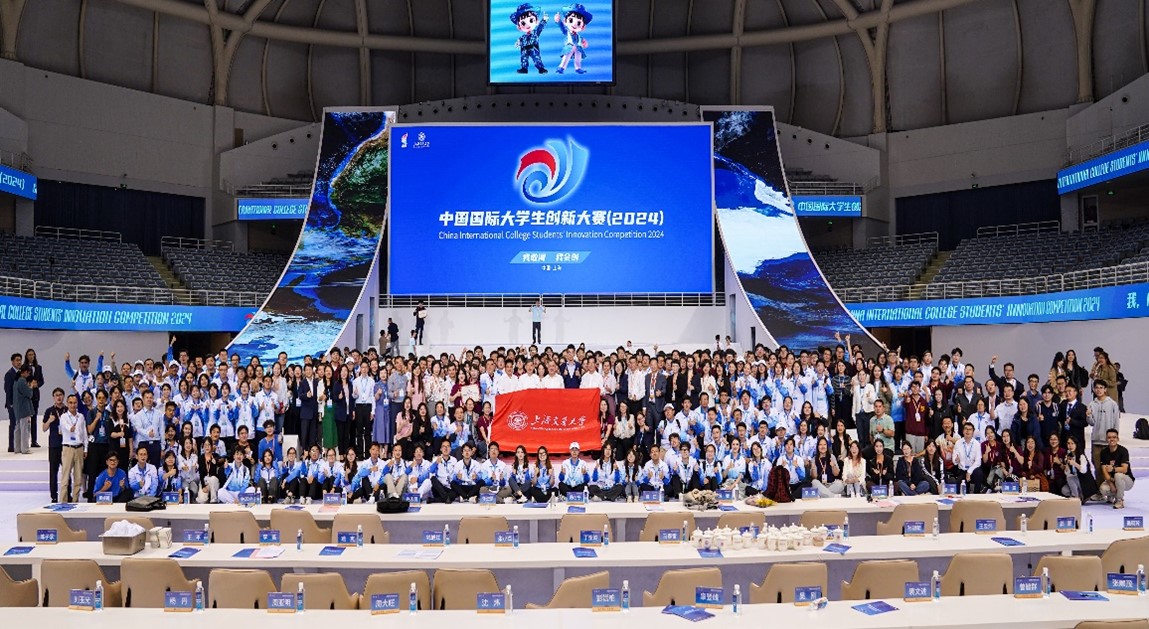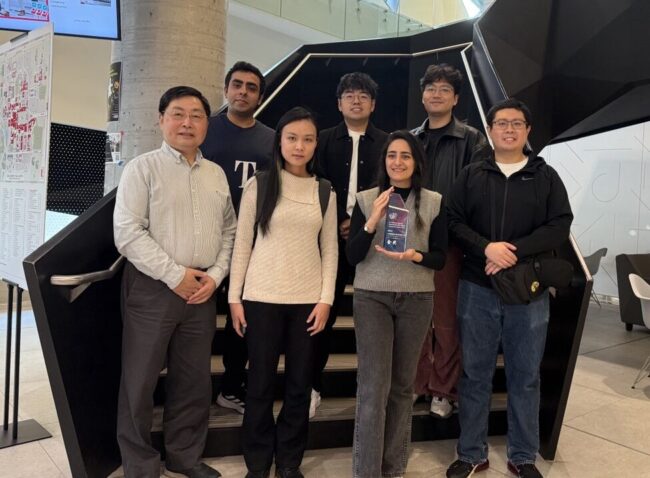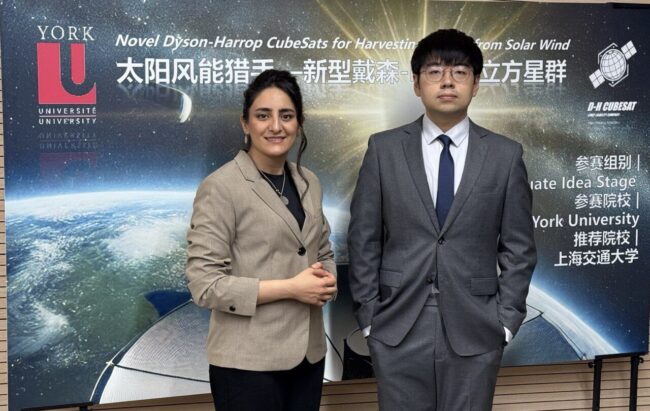Reaching for the Stars: Lassonde students win gold medal for space tether technology concept
Tags:

With creativity, innovation and a drive to make an impact, a talented team of students from York University’s Lassonde School of Engineering earned a top spot at the China International College Students’ Innovation Competition 2024. Competing among thousands of teams from across the globe, the team of PhD candidates from Professor George Zhu’s lab secured third place in the international group and won a prestigious gold medal for their groundbreaking project on in-space power generation technology called Dyson-Harrop CubeSat.
The competition was a two-stage challenge: a business proposal and a proof-of-concept presentation. The Lassonde team, which included Earth & Space Science PhD candidates Qi Zhang and Mitra Taghizadeh, along with Mechanical Engineering PhD candidates Hadi Jahanshahi, Fuzhen Yao and Zhengze Liu, presented their conceptual space tether system, designed to harvest energy from protons and electrons in solar wind. The team’s innovative design effectively addressed critical engineering challenges, enabling the full deployment of the Dyson-Harrop CubeSat in complex space environments. The team also projected that the energy generated by a single Dyson-Harrop CubeSat could power more than 100,000 households or 20,000 space stations. Their project earned praise for its ambitious effort to transform a concept once relegated to science fiction into a practical engineering solution.
“This competition was all about showcasing innovative ideas, highlighting commercial value and connecting with industry leaders for valuable feedback,” says Qi Zhang. “This was a great opportunity to refine our work and bring our research closer to real-world applications.”

Professor George Zhu (bottom left) and the Lassonde team in the Bergeron Centre for Engineering Excellence
The team also introduced a novel method for precise, real-time control of the tether’s behaviour, overcoming the limitations of traditional models. Their approach aims to make future space missions more efficient and pave the way for sustainable energy capture, both in space and on Earth.
Reflecting on the competition experience, Mitra Taghizadeh says, “I enjoyed presenting our project to a panel of judges. It felt amazing to defend our idea and receive a gold medal. This recognition validates the potential of our project to make a significant impact on space science.”
For Zhang, the experience reinforced the importance of participating in global competitions. “It was rewarding to see how our research could be applied beyond academic settings,” he says. “Competitions like this are also important for discovering new ideas and inspiring others to pursue research in the field.”

Mitra Taghizadeh (left) and Qi Zhang (right) at the China International College Students’ Innovation Competition 2024
With a shared passion for space science and problem-solving, both Zhang and Taghizadeh are looking forward to continuing to push the boundaries of space exploration and energy innovation. The students also credited their success to their supervisor, Professor Zhu, who has been a key mentor during their time at Lasonde.
“Professor Zhu has been an incredible source of support and guidance throughout my education and research journey,” says Zhang. “He has helped me refine my research objectives and methodologies, and he encourages me to participate in conferences, competitions and networking opportunities.”
Taghizadeh echoed a similar sentiment, describing Professor Zhu as an inspiring role model. “He consistently supports and encourages new ideas and initiatives from his students,” she says. “His guidance has kept us focused on key aspects of our work, while emphasizing the importance of investing time and energy in areas with the greatest impact. Thanks to his support, I’ve been able to attend various conferences, interact with researchers and expand my scientific and communication skills over the past two years.”
The team’s success at the China International College Students’ Innovation Competition 2024, is a testament to Lassonde’s commitment to nurturing innovation and advancing space science and technology. As the only university in Canada offering a Space Engineering program, Lassonde stands at the forefront of aerospace education. The School’s dedication to excellence is further highlighted by its ranking as #1 in Aerospace Engineering in Canada and #26 in the world, according to the ShanghaiRanking 2024. For Lassonde students, participating in conferences is an essential part of their personal and professional development. These opportunities not only foster valuable skills but also provide a platform to engage with global innovators.